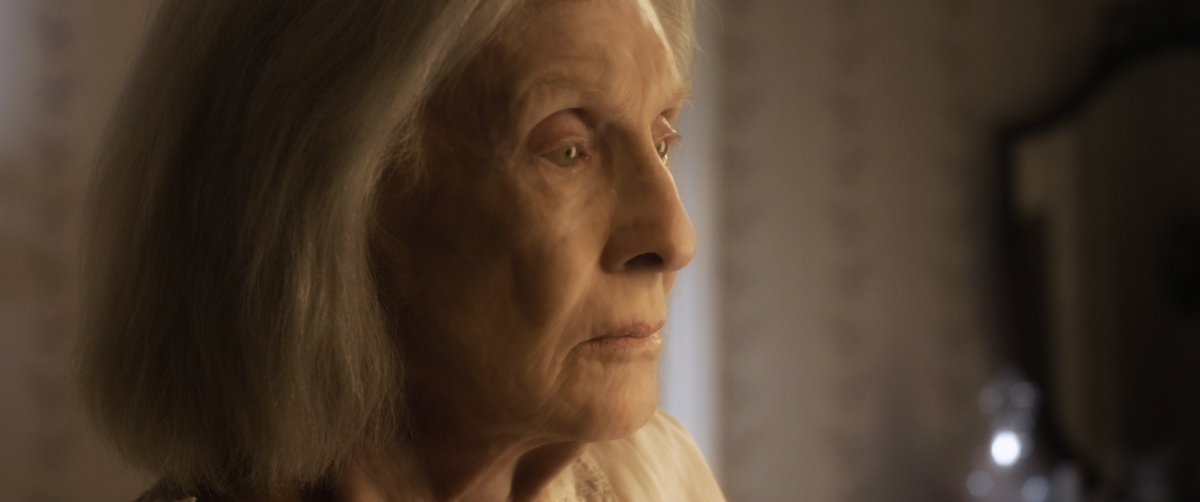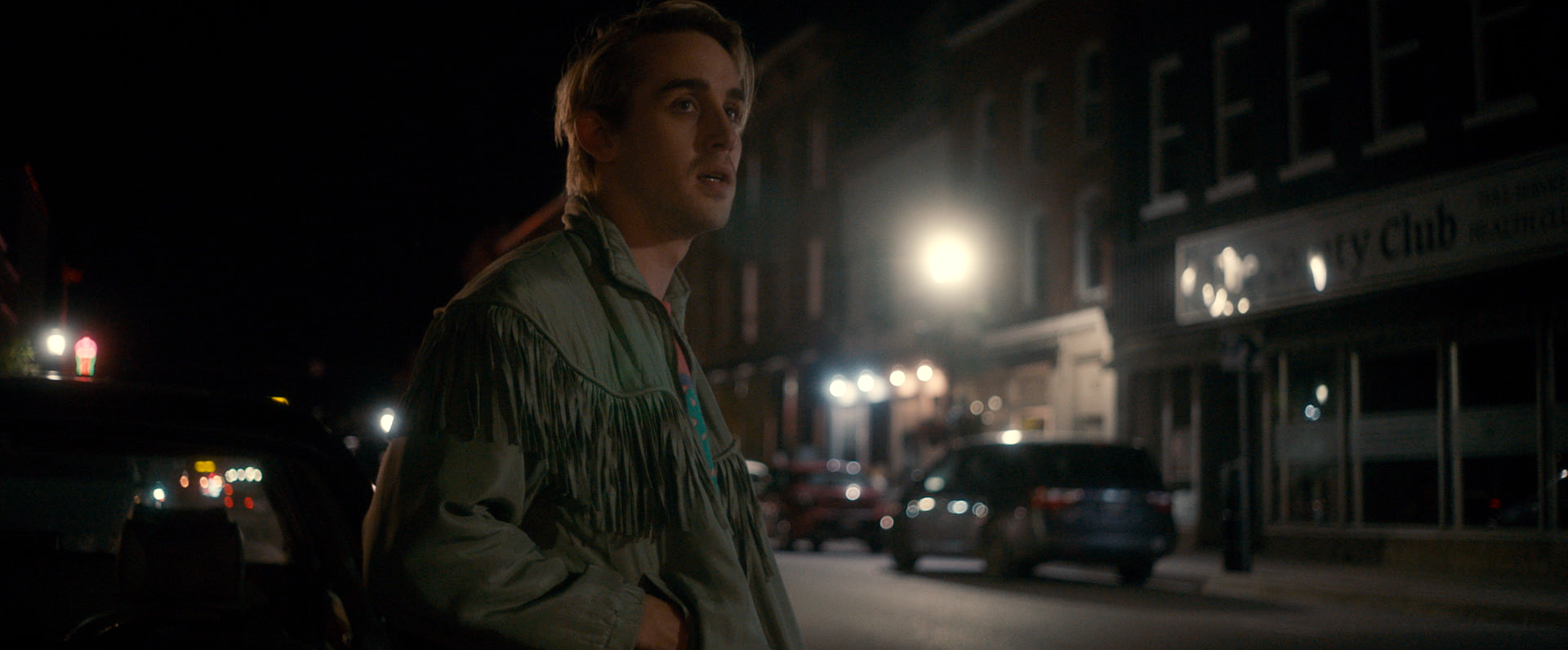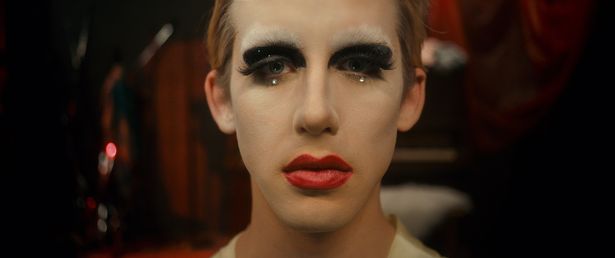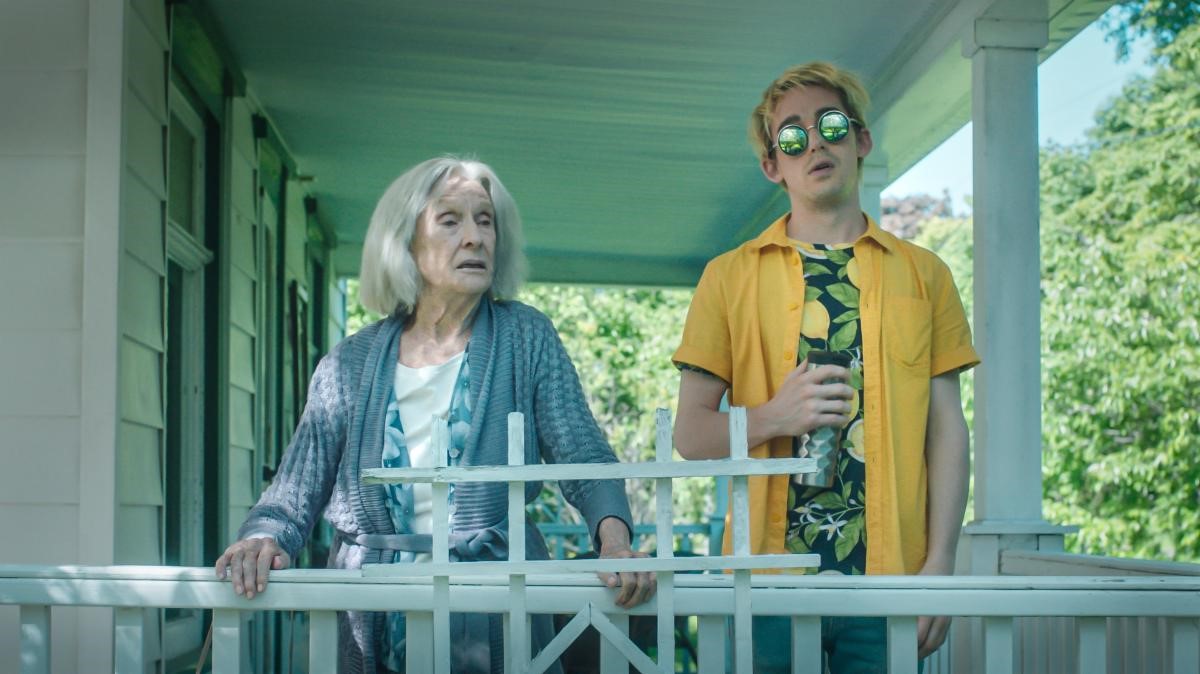Identity evolution, struggles and troubled transitions are familiar themes and storylines in Outfest fare, and Phil Connell’s Jump, Darling (the U.S. release of which was delayed by the Covid-19 pandemic) fits neatly if slightly awkwardly into this category. What’s interesting and almost brave about the film is the way it faces that awkwardness—deliberately and head on. Even the title, and the narrative behind it—a past family trauma from which certain inferences are intended to be drawn—is treated tenuously and ambiguously: as tragic legacy, foreshadowing, and dual encouragement and cautionary tale all rolled into one. Each of the main characters, separated by more than one generation but parallel in their uncertainties and trepidations, finds him/herself at critical life crossings without a clear sense of how they will live and who they will finally be on the other side.
The film is also forthright about facing a certain morbidity the culture—even in this moment of pandemic and climate collapse—usually shies away from: death is an option considered by both characters. Russell (Thomas Duplessie), a young Toronto-based actor and drag performer is struggling through a crisis of confidence—his own and that of his status-conscious lover’s. With no clear plan in sight and no means of executing one, Russell leaves lover and Toronto both, heading east towards Prince Edward County and a cozy if slightly ramshackle house his grandmother, Margaret, has occupied for most of her adult life and where she continues to live—alone and presumably well into her 80s (or 90s—as is actually the case here). It takes some finesse to act out the scary and more than slightly absurd stages of self-extinguishment, but Connell had the great fortune of casting Cloris Leachman as Margaret, and Leachman can modulate from bleak resignation to sarcastic smirk scarcely moving a muscle. Leachman takes us through all the stages of Margaret’s struggle to retain her independence and dignity to the bitter end—halting but purposeful movement through her domesticity, her pharmaceutical temptations, the mix of care, commingled understanding and misunderstanding, and acceptance of her grandson, and her clash with family’s and friends’ lockstep expectations—one more quality she has in common with her grandson, and another aspect of the film that sets it apart from other identity dramas.
It’s Russell’s break that’s more willful and unexpected—performed (necessarily) and articulated in bar/discotheque drag performances tightly choreographed to pop dance chart hits. His break with convention (a more commercial acting career) to devote himself more or less exclusively to drag performance entails risk—also the occasional mortification, even humiliation; with social and romantic connections all the more fleeting and tenuous. It’s a gypsy life, but his own to make as he will.
This is where the legacy of the past—both his own and queer culture going back to radical faeries and the Cockettes—meets an uncharted future. Connell has a lot to compress in this space, but he gives us a sense of where this kind of performance (and Russell himself) are going. Drag was always both glitterbomb fantasy-pastiche merged with social critique, but Connell gives us a glimpse of where it might go post-ballroom, Rupaul and the other commercial permutations beyond bars and clubs: not necessarily a Western ‘kabuki’, but a social narrative fused from sex/gender play and the cultural clichés of pop music. (The film’s soundtrack includes music or musical references from, among others, Robyn, Scissor Sisters and London Grammar, as well as a full-on performance of Rough Trade’s “High School Confidential”—perfect material played to the hilt by Duplessie.)
The film—Cloris Leachman’s last film performance—was preceded by a brief film/video tribute to the star herself, featuring actors as disparate as Bryan Cranston, Lily Tomlin, Cybill Shepherd, Bob Saget, Leslie Jordan and others. I was disappointed not to see more (e.g., Peter Bogdanovich—or for that matter, Timothy Bottoms or Jeff Bridges; Mel Brooks, etc.), although clearly many of those best-equipped to pay tribute to her astonishing gifts had predeceased her. For those familiar with her work on screen and stage, Jump, Darling was itself a tribute to her fierce talent and unyielding discipline. Watching her play Margaret was testimony not only to her radiant talent and undiminished acting skill but a masterful creative economy of performance—Leachman is not one to leave a single moment of screen time wasted and there’s music to every moment. The catalogue of her career could make a textbook for acting—or for any creative life.


